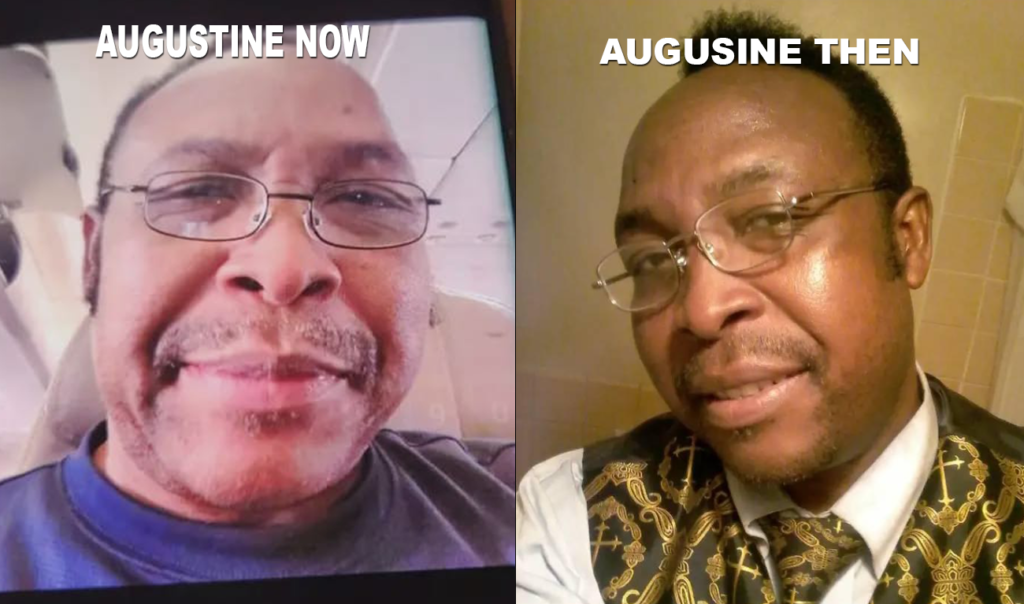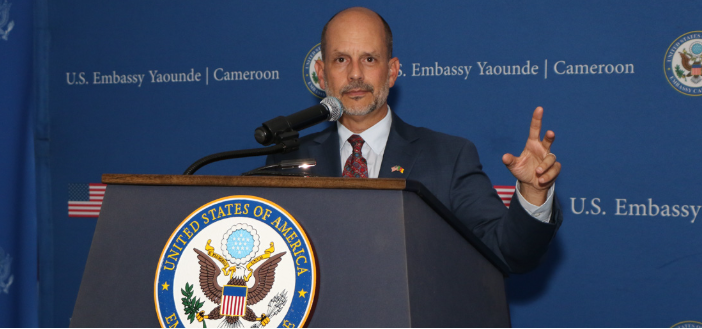Washington, D.C – The harrowing ordeal of Augustine Forka Ajua, a U.S. citizen abducted at Douala International Airport in January 2025 and held incommunicado until his recent emergence in Kondengui Central Prison this April, demands urgent attention and action. Reports indicate that during his secret detention at the State Defense Secretariat (SED), Ajua endured severe torture and deprivation. Compounding this grave situation is his acute diabetic condition, which necessitates consistent medical care—a necessity blatantly denied during his unlawful confinement.
The U.S. Embassy in Cameroon has a fundamental duty to protect its citizens abroad. Yet, in Ajua’s case, the embassy’s response has been egregiously inadequate. Despite being alerted to his disappearance and critical health needs by family members, the embassy’s failure to locate and secure release for Ajua is indefensible. This dereliction of duty raises pressing questions about the embassy’s commitment to safeguarding all American citizens, irrespective of race or ethnicity.
One cannot help but ponder: Had Augustine been a Caucasian American, would the embassy’s efforts have been more vigorous and immediate? This disparity in response suggests a troubling inconsistency in the protection afforded to U.S. citizens abroad, hinting at potential racial biases that must be addressed.
The conditions within Kondengui Central Prison are notoriously deplorable. Originally constructed to house 1,500 inmates, the facility has been reported to detain upwards of 9,500 individuals, leading to severe inhumane living conditions. Inmates suffer from inadequate sanitation, insufficient food, and limited medical care—circumstances that are particularly perilous for someone with Ajua’s health condition.

The U.S. Embassy’s previous claim of being unable to locate Ajua during his detention at SED is deeply concerning. Now that his whereabouts in Kondengui are known, the embassy is compelled to act decisively. Immediate steps must be taken to ensure Ajua’s release and to provide him with the necessary medical care. The embassy must conduct a thorough review of its protocols to prevent such failures in the future and to reaffirm its unwavering commitment to protecting all American citizens abroad, regardless of their racial or ethnic background.
The U.S. government’s stance on human rights abuses in Cameroon has been clear, with reports highlighting concerns such as arbitrary detention and torture. However, these proclamations ring hollow if immediate and concrete actions are not taken in cases like Ajua’s. The embassy’s inaction not only undermines its credibility but also endangers the lives of U.S. citizens who look to their government for protection.
This case should serve as a catalyst for introspection and reform within the embassy to guarantee that no American citizen is ever again subjected to such neglect and injustice.


1 Comment
I really like what you guys are usually up too.
This kind of clever work and reporting! Keep up the wonderful works guys I’ve incorporated you guys to blogroll.